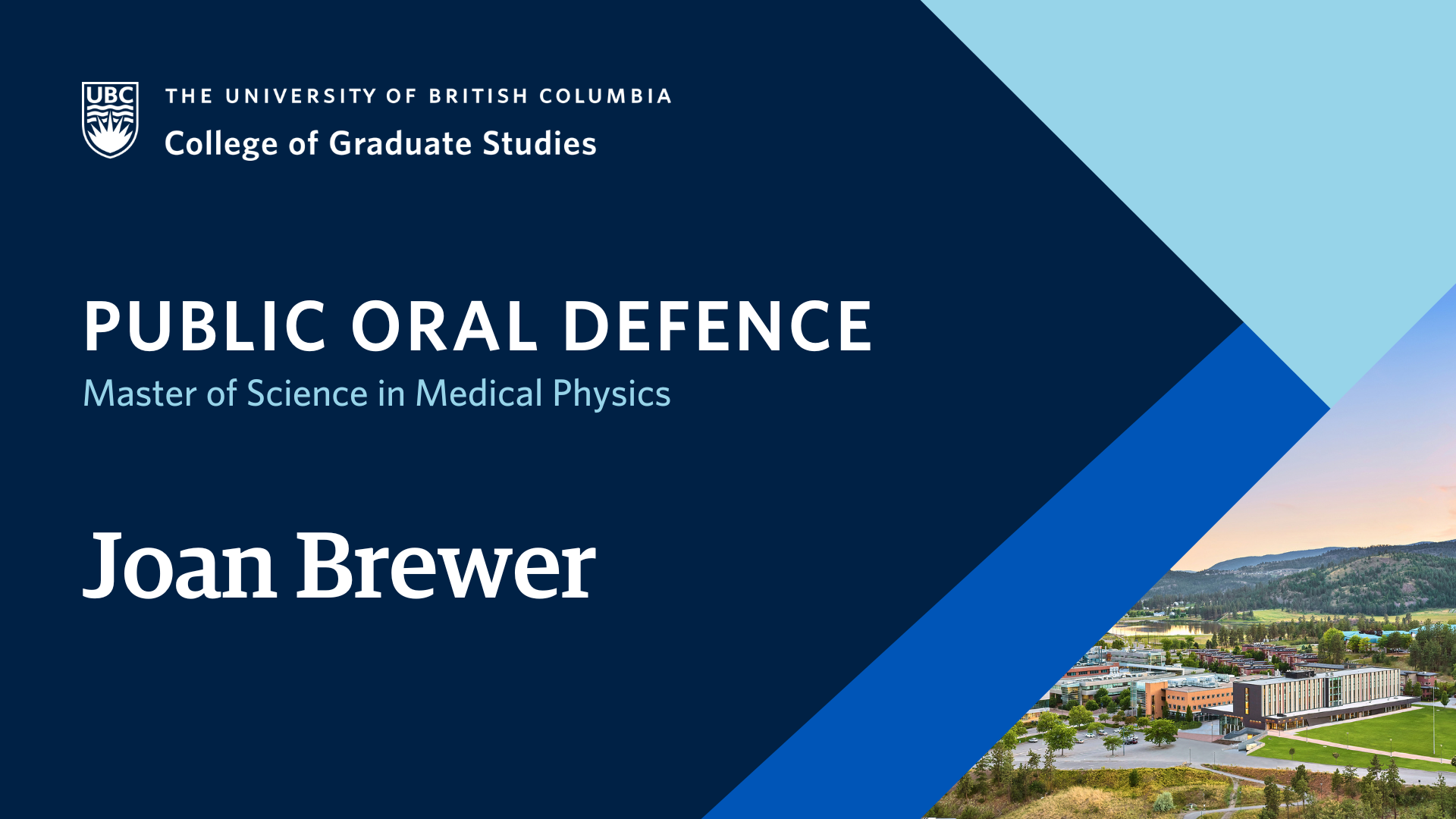
- This event has passed.
Thesis Defence: Automated processing of prostate-based Raman spectra
July 11, 2023 at 1:00 pm - 4:00 pm

Joan Brewer, supervised by Dr. Andrew Jirasek, will defend their thesis titled “Automated processing of prostate-based Raman spectra” in partial fulfillment of the requirements for the degree of Master of Science in Medical Physics.
An abstract for Joan Brewer’s thesis is included below.
Examinations are open to all members of the campus community as well as the general public. Registration is not required for in person defences.
ABSTRACT
Background. Raman spectroscopy (RS) is an optical method of determining samples’ molecular composition through inelastic light scattering. This work involves an investigation into the processing of Raman spectral data as it relates to prostate cancer. Raman data processing methods come with inherent issues, including user variability, inefficiency, and lack of consensus regarding method selection. This work hypothesizes that an automated algorithm for processing prostate-based Raman data could be developed, which would overcome these issues.
Algorithm. The algorithm, called Automated Raman Processing (ARP), was developed in Matlab and R. The ARP pipeline includes discarding spectra with discontinuities, removing cosmic rays (CRs), background subtraction, wavenumber correction, and spectral selection, i.e., determining which spectra are of sufficient quality to retain for downstream biochemical analysis (which can also be performed with ARP).
Results. Discarding spectra with discontinuities: There was 100% agreement between the author and ARP. CR removal: Among good quality spectra (those of sufficient quality to retain), 96% of CRs were successfully removed; those not removed were of very low intensity and therefore a minor or non-issue. Also among good spectra, 3 spectral peaks were erroneously identified as CRs and eroded. During post-processing, averaging across dozens or hundreds of spectra is performed, thus this is also considered a minor issue.
Spectral selection: The author and algorithm disagreed on < 0.07% of spectra; in contrast, two users performing manual selection disagreed on > 12% of spectra. 430 of 576 spectra were classified as good, giving 74.7% data retention. Efficiency: Manual spectral processing can take up to three hours / day without use of ARP. Inclusion of the ARP algorithm reduces this processing time to ∼ 10 minutes. Generalization: ARP has been generalized for effective processing of mouse lung data in addition to prostate-based data.
Conclusion. ARP is an automated method of processing data which is both efficient and effective. Future work will include further generalization to process additional data types, application in convolutional neural network development, and investigation into correlation between Raman and immune profiles.